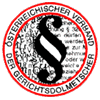
Adherence to the highest standards of quality: ISO 17100
During translation we ensure a constantly high level of quality by means of the dual control system: every translation is made by a qualified translator, and in a second step it is checked by an equally well-trained translator with experience in the respective field.
This corresponds to the specifications of ISO 17100 (requirements for translation services). At best practice translations
e. U., the remaining requirements of this international quality standard are also fulfilled, whether it is with regard to the qualifications and ongoing further training of the translators involved, or in relation to project management and the handling of orders in general.
Officially certified competence: Court interpreting and translation licence
 The owner of best practice translations e. U., Heide Maria Scheidl, passed the court interpreters’ examination in 2002 and has since then successfully completed the legally required recertification process.
The owner of best practice translations e. U., Heide Maria Scheidl, passed the court interpreters’ examination in 2002 and has since then successfully completed the legally required recertification process.
The designation ‘sworn and certified court interpreter for English’ is legally protected. The requirements for becoming a court interpreter are laid down in the Federal Law on Sworn and Certified Court Experts and Interpreters (SDG).
According to the SDG, court interpreters have to carry out their work not just orally (as interpreters), but also in writing as translators. Whereas until the late 1990s court interpreters did not have to pass any examinations in order to be entered in the official register of court interpreters, since 1999 a certification procedure has been in place. This not only requires evidence of several years of relevant experience (at least two years of work experience in the case of a translation-related university degree, or five years for all other applicants for registration); an examination has to be taken consisting of several parts (translation skills, interpreting skills and knowledge of the legal systems of the countries whose languages are to be interpreted). The examination is conducted by a three-person commission of the competent Regional Court. Having passed the court interpreters’ examination, recertification takes place every five years, which includes submission of evidence on the applicant’s ongoing work as a court interpreter and on comprehensive ongoing education and training.
There are currently just under 800 court interpreters for more than 50 languages (including Austrian sign language) throughout Austria, of whom around 130 are registered for English. The list of Austrian court experts and interpreters can be viewed at .
Alongside their regular work at and for the courts and various authorities, court interpreters carry out certified translations for submission to authorities and courts, and which have to include a statement about their certification and be duly dated, signed and sealed.
Certified by Austria’s professional association: UNIVERSITAS Austria certificate
 Since 2009, Heide Maria Scheidl has been certified as a translator by UNIVERSITAS Austria , the Austrian professional association of interpreters and translators.
Since 2009, Heide Maria Scheidl has been certified as a translator by UNIVERSITAS Austria , the Austrian professional association of interpreters and translators.
The certification procedure requires at least two years’ membership of the association and at least three years of relevant experience. It consists of a peer review process, in the course of which a considerable amount of specimen translations have to be submitted which need to be approved by two reviewers.
In everyday practice, this means:
Standardised processes: The use of state-of-the-art technology
At best practice translations e. U., computer-aided translation (CAT) tools and comprehensive terminology management are deployed. This enables a more efficient translation process and is an essential factor in quality assurance.
Customers receive quality-assured and consistent translations which use carefully researched and documented terminology.
Staying on the ball: Lifelong learning
Ongoing education and training in all of the facets of her profession as a translator and court interpreter are a matter of great importance to Heide Maria Scheidl. The further training schemes and events she regularly attends range from specialist translation conferences at home and abroad to training for new tools such as voice-recognition technology and specialist lectures on selected subject matter (e. g. IFRS accounting and legislation on narcotic substances). You can find an extract of training courses and events attended by her at her UNIVERSITAS Austria membership page.
